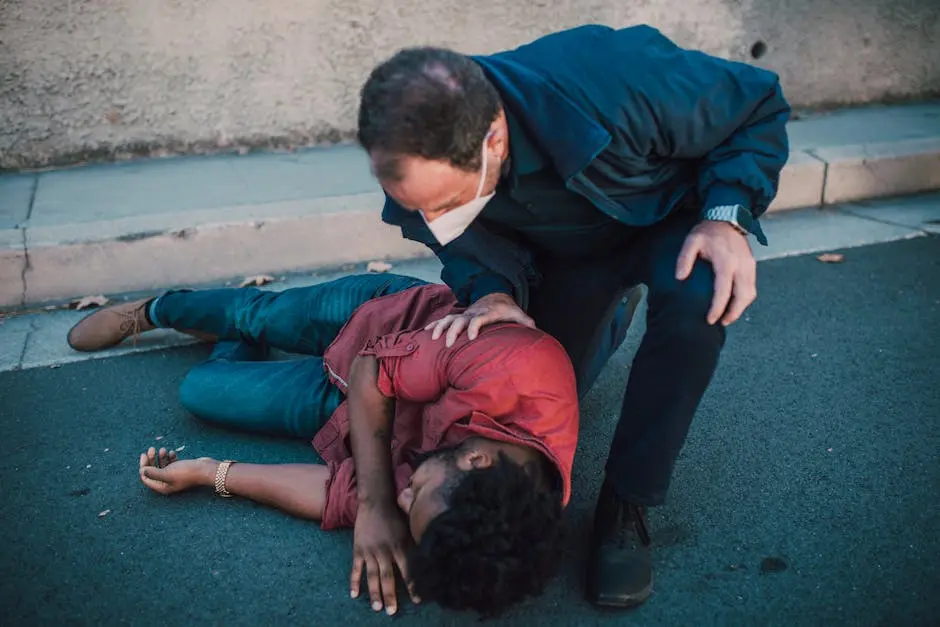Car accidents can be overwhelming and stressful experiences. Knowing what to do right after an incident can make a significant difference in how things unfold thereafter. If you find yourself in a traffic accident in Fayetteville, keeping a clear head and following these steps might just help you navigate the process more smoothly. This guide breaks down the essential actions to take post-accident, ensuring you’re prepared to handle the situation effectively.
1. Ensure Your Safety First
After an accident, the first priority is to ensure your safety and the safety of others involved. Move to a safe location if possible, and check for injuries. It’s not just about getting out of the cars; it’s about ensuring that everyone is secure, which may involve helping others if they need assistance.
If you can, turn on your hazard lights to alert other drivers. This can prevent further accidents. Also, try to stay calm during this initial chaos. It’s good practice to take a few deep breaths to help center yourself. Remember, you can always seek help from bystanders who may be willing to assist, but your safety must come first.
2. Call Emergency Services
Contacting emergency services should be done immediately, especially if there are injuries or significant property damage. They will assist in managing the scene and documenting the incident. It’s vital that you provide them with accurate informationabout the location and severity of the accident.
While waiting for emergency personnel, try to remain at the scene. Even in a stressful situation, it’s crucial to be calm and cooperative. Make sure to gather information from others about what happened; it can help the authorities piece together the events once they arrive. Establishing an accurate account will be helpful for insurance claims later.
3. Exchange Information with Other Drivers
Gather essential information from the other drivers involved, such as names, contact details, insurance information, and vehicle details to facilitate any necessary claims or legal actions. This step is key because it sets the groundwork for any potential legal proceedings or insurance claims you may need to file.
Don’t forget to write down the make, model, and license plate numbers of the vehicles involved. If there were witnesses to the accident, ask for their contact details as well. Their accounts can be invaluable, providing additional perspectives on the incident. Keeping detailed records can also help you should disputes arise later.
4. Document the Scene
Take pictures of the accident scene, vehicles involved, and any visible damages or injuries. This documentation can be crucial for insurance claims and legal matters. Having photographic evidence can strengthen your case and provide clarity regarding the condition of vehicles and the scene itself.
In addition to photos, try to make a quick sketch of the scene, highlighting key details like road signs, traffic signals, and the positions of the vehicles involved. Capturing the context of the accident can be immensely beneficial when you recount the events later, either to your insurance company or your attorney.
5. Notify Your Insurance Company
Inform your insurance provider about the accident as soon as possible. They will guide you through the claims process and help you understand your coverage options. Be prepared to provide them with the details you gathered previously, including information on the other drivers and the circumstances surrounding the incident.
Navigating insurance claims can feel overwhelming, but your insurance agent is there to help. They will inform you about the next steps and what documentation you need. Make sure to ask for clarification on any points that seem unclear; understanding your policy can significantly affect how you proceed.
6. Seek Medical Attention
It’s vital to get a medical evaluation after an accident, even if you feel fine. Some injuries may not be immediately apparent and early treatment can prevent complications. A doctor’s visit is not just about treatment—it also documents any physical injuries for your insurance claim later.
If you’re experiencing any discomfort or pain, mention these symptoms to your healthcare provider immediately. They can provide guidance on follow-up appointments or treatments you might need. Remember: your health is the most important aspect of recovery.
7. Consider Legal Assistance
Consulting with a traffic lawyer in Fayetteville can provide valuable insights regarding your rights and responsibilities post-accident. They can help navigate the complexities of the legal process. This is especially important if the accident has led to disputes or if you face potential liability.
Legal assistance can be pivotal in ensuring that you receive the compensation you’re entitled to and that all your rights are protected. A seasoned traffic lawyer will have experience handling similar cases, which means they can steer you clear of common pitfalls in the aftermath of an accident.
8. Follow Up and Stay Organized
Keep all documents related to the accident organized, including police reports, medical bills, and correspondence with insurance companies. Following up on claims and legal proceedings is essential for a smooth resolution. It helps alleviate stress when everything is in one place and accessible.
Consider creating a dedicated folder, both physical and digital, where you can maintain records related to the accident. Regularly check in with your insurance provider and any legal representatives. Staying proactive and informed will help ensure that you understand every step of the process.


